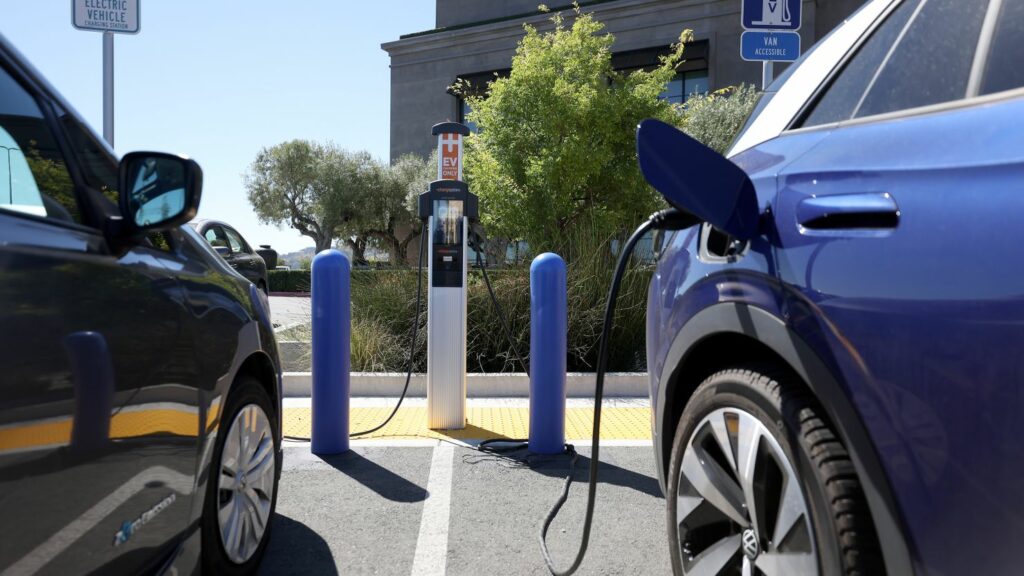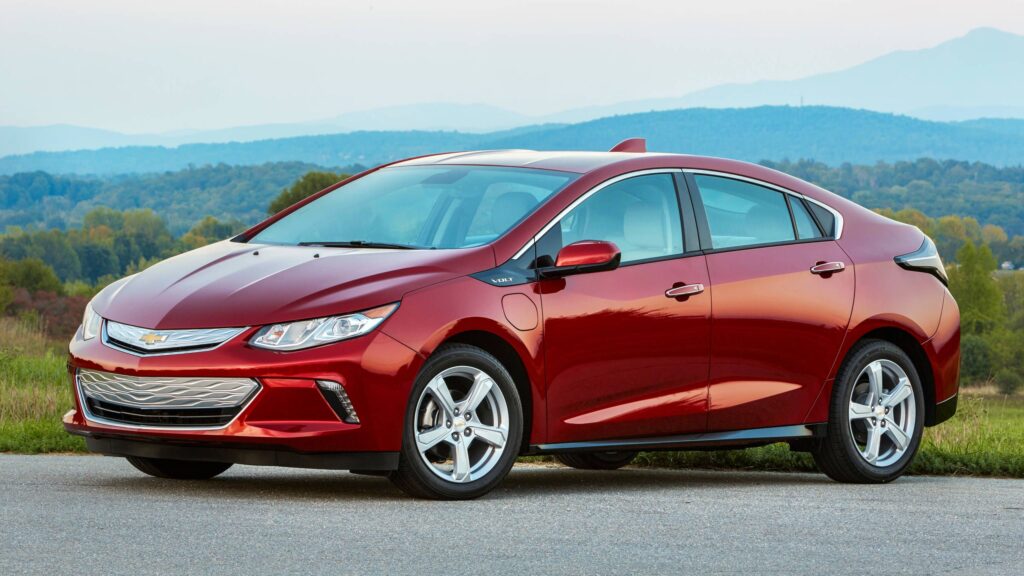Political scientist Robert Conquest famously said that the best way to predict the behaviour of an organization is to assume that it is controlled by a secret cabal of his enemies. And it seems to apply to modern democratic governments in two ways on climate: First, they seem determined to wreck their economies and second, they seem determined to wreck their own political prospects. Including by making us all buy exploding unsatisfactory electric cars from Communist China. Really?
The propensity of EVs to explode is, as we have said before, no joke. Britain’s Daily Mail just reported that:
“Electric car owners face soaring insurance and repair costs over fears the vehicles could explode after being in even minor collisions. Damaged EVs must be ‘quarantined’ 15 metres apart from other cars in repair shops due to the risk of battery fires under government guidelines – driving up the price for mechanics and insurers. A lack of suitable repair shops and EV trained mechanics risks increasing costs to the insurance industry by more than £600million, which could be passed on to drivers.”
Think they’ll put that in the sale brochure? And next time your car is in the shop, look around and imagine having to separate each and every vehicle they’re working on by 45 feet. Whole new shop, right?
British science writer, journalist, businessman and gadfly Matt Ridley, aka 5th Viscount Ridley, who has also tirelessly investigated the Chinese lab origins of COVID and worked for The Economist back when it was good, then wrote an opinion piece for the Mail headlined “Why I'll be buying a brand new petrol car just before the 2030 ban” that started out briskly:
“Britain’s electric vehicle transition and the ban on petrol car sales from 2030 are a slow-motion car crash. The technology is not ready, the cost will be vast, the logistics are forbidding, the reliance on China is worrying and the backlash from the public is likely to be harsh. Worst of all, the benefits are derisory at best and may not even exist. Yes, you read that right. It is possible that we could replace all of Britain’s cars and vans with electric vehicles and still find that carbon dioxide emissions are higher, not lower. Cost-benefit, hello?”
Of course virtue-signaling brings large benefits… to the signaler. At least until people realize they’ve been had.
The whole thing is a subsidized bubble. Journalists who would not appreciate free-market economics even if they knew about it happily write headlines like “Tesla sees record global deliveries after lowering prices and tapping into EV tax credits” over text like:
“Tesla reported record quarterly global auto sales after it cut prices on its autos and customers reap the benefits of renewed tax credits for purchasing its electric vehicles. The Elon Musk-led carmaker announced Sunday it had sold 466,000 vehicles worldwide – 4% higher than Wall Street estimates.”
And it never occurs to them that what they are describing is not sustainable in any sense.
Western carmakers are getting murdered in China and, thanks to their own governments, at home as well. As Joel Kotkin noted in the National Post:
“Ford recently announced massive layoffs, despite landing a $9 billion loan from the Biden administration to bolster its EV production. The firm is currently losing $60,000 per EV, which is not exactly sustainable without massive state subsidies. Meanwhile, Germany could lose upwards of 400,000 auto jobs by 2030 thanks to the green transition.”
But the politicians aren’t listening, except to cries for yet more intervention rather than less, to make people buy EVs they do not want and for good reason.
Axios, which is no hotbed of reaction and denialism, recently warned that “Unsold electric cars are piling up on dealer lots”. Bummer. Why? It turns out to be kind of simple:
“The auto industry is beginning to crank out more electric vehicles (EVs) to challenge Tesla, but there's one big problem: not enough buyers.”
And what is wrong with these people? They seem perversely determined to think for themselves:
“The growing mismatch between EV supply and demand is a sign that even though consumers are showing more interest in EVs, they're still wary about purchasing one because of price or charging concerns.”
Axios remains semi-chipper, wrapping up with:
“More charging infrastructure is coming, and EV prices should reach parity with gasoline vehicles around 2025, according to Bank of America Securities auto analyst John Murphy. Until then, automakers will be left waiting for EV buyers to show up.”
Unless of course the state bans the stuff they really want and says go fish in China, sending our jobs and cash there because um well see gosh why did we do that?
The Epoch Times, which some might say actually is a hotbed of reaction, also notes that:
“The number of unsold electric vehicles at dealers in the second quarter tripled compared to the past year, signaling a weakened demand for the segment, said a recent report by leading auto-dealer data company Cox Automotive. In second quarter 2023, the average inventory for electric vehicles (EVs) topped more than 92,000 units on the ground at dealer lots, according to the 2023 Cox Automotive Mid-Year Review presentation. This is up 342 percent compared to second quarter 2022.”
The Times also cited one of those accidentally revealing pieces of market research:
“While inventory is building up at dealer lots, a study by Cox Automotive found a wide gap between dealers and customers regarding future expectations of EV use. According to Cox Automotive’s 2023 Path to ‘EV Adoption: Consumer and Dealer Perspectives’ study, even though 53 percent of consumers see EVs as a future and that such vehicles will replace gas engines over time, only 31 percent of dealers held such a view.”
Consumers famously know what they’re meant to tell pollsters, and also try to guess what their neighbours are thinking. But dealers have skin in the game. And so do consumers, who may tell pollsters EVs are the future but then don’t go buy one.
Speaking of skin in the game, another story out of the UK shows that burn treatment may be necessary:
“Used electric car values have dropped like a stone in 2023: We reveal the biggest fallers this year – and the worst performing 20 are all EVs”
Ironically, one problem is that the deliberate widespread policy of increasing the price of electricity by shutting down reliable generating plants has made EVs a much worse deal. Another is disappointment with their performance, particularly the real range you get from a charge. And whatever rationalizations may be offered, those who buy them just aren’t happy.
In the New York Times columnist Peter Coy also weighed in, from a sold-on-climate-alarmism perspective, that hybrids might be better than all-electrics because of the familiar, and massive, problems with battery manufacture, weight, performance etc. And he observes that “Of course, drivers could be bribed into buying E.V.s if enough money were thrust in their faces.” But even he doesn’t want them to be bribed to that degree, despite saying “I get that climate change is an existential crisis.”
Meanwhile Canada’s state-funded CBC even ran a piece from an impeccably progressive freelancer whose EV road trip turned into an anxiety-inducing hunt for charging stations. And aboriginal commentator Melissa Mbarki added:
“My fear as well when it comes to EV's. My family lives 8-9 hrs from me. I'd have so many stops it would be a 2 day drive (if I made it in the winter).”
These are legitimate, real-world, pervasive concerns. Thus Rowan Atkinson, the famous comic actor who somewhat surprisingly turns out to have obtained a degree in electrical and electronic engineering before becoming Blackadder and Mr. Bean, wrote in the Guardian last month that:
“I bought my first electric hybrid 18 years ago and my first pure electric car nine years ago and (notwithstanding our poor electric charging infrastructure) have enjoyed my time with both very much. Electric vehicles may be a bit soulless, but they’re wonderful mechanisms: fast, quiet and, until recently, very cheap to run. But increasingly, I feel a little duped. When you start to drill into the facts, electric motoring doesn’t seem to be quite the environmental panacea it is claimed to be.”
Duped. Not a happy outcome.



"EV prices should reach parity with gasoline vehicles" How? I know, "Here's your subsidy sir....We'll tax you later". Here's a prediction: By 2030, there will be a mad rush at KENNY-U-PULL. We will have to import auto mechanics from Cuba. They know how to keep old cars running.
Yes, even Lt Slackbladder gets it.
Ford losing $60k per car, demand making the inputs even pricier and yet will be cost parity with ICE cars in 2025? This is what we get with government supplying crack to crackheads, they then write ridonculous things.
Ironic that this article should be posted on Wednesday, same day as the Freemantle Highway disaster.
https://www.reuters.com/world/europe/one-dead-cargo-ship-fire-electric-car-suspected-source-dutch-coastguard-2023-07-26/
I work in the shipping industry, and I can 100% guarantee this is an EV fire.
Shipping regulations for normal cars require that the gas tank be completely empty, and the battery disconnected, and this has proven an exceedingly effective way of preventing fires.
Also, accidents on ships that carry cars didn't involve fires onboard almost at all until EVs became more widespread, and now suddenly car carrying ships are catching fire left and right. There are some shipping companies that flat out refuse to ship these monstrosities.
So when will governments start to tax electric vehicles and the charging. They will have to replace the absurd taxes on gas and diesel at some point. They can’t afford nor to since they are addicted to spending!